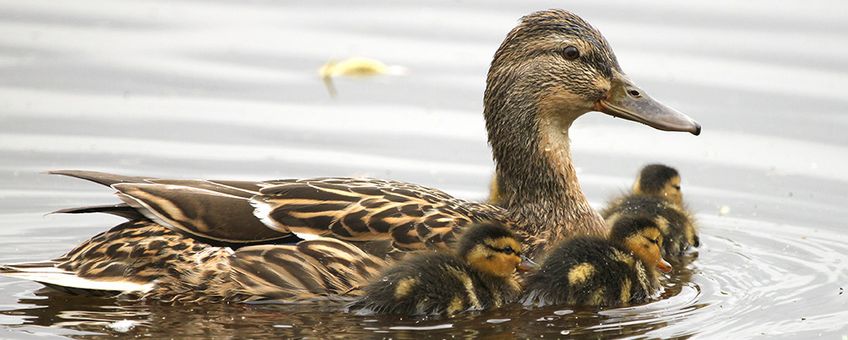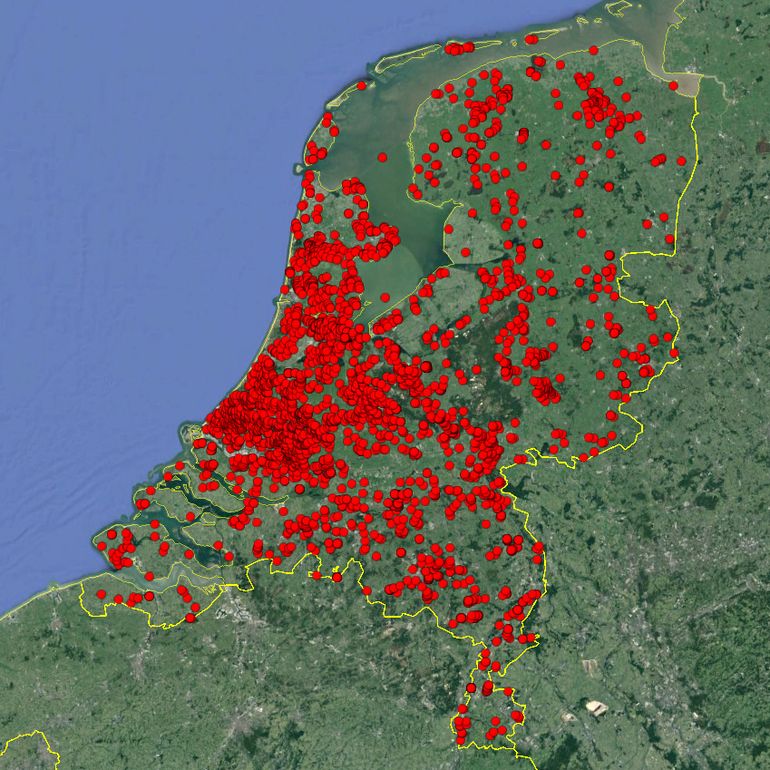
More than 4,500 duckling sightings for 'Dr. Duck'
Netherlands Institute of Ecology (NIOO-KNAW)"The number of observations that people have submitted to me this year", says Erik Kleyheeg, "has passed the 4,500 mark. In early May, the daily average was more than one hundred. Now it's dwindled to about ten, which is in keeping with the dynamics of the nesting season."
One thing that has stood out for Kleyheeg, he says, is how committed many people are. "Some have been keeping track of duck families week by week, which has provided me with important extra information. The project is still underway so it's too early for conclusions, but I do have some leads."
Poor survival rate
The picture emerging from the observations is that the survival rate of ducklings is quite poor: out of every ten, four or fewer make it to the fledgling period, which starts around week eight. It's generally assumed that such poor survival rates will have an impact on population size.
"Of course it's important to realise that most people submit observations from the areas where they live, which in many cases are urban. It may be more difficult for ducklings to survive in the city: reinforced banks make it harder for them to get out of the water, mowing strips away their natural cover and of course traffic is a factor."

Herons, rats, pikes
Many people suggest that rats could be responsible for the decline, but Kleyheeg is not convinced. "Rats do eat duck eggs, but for ducklings, herons are actually a bigger threat. And if you see a duckling being pulled underwater, chances are that it's a pike."
Predators are hardly a new phenomenon; the real question is: has anything changed which is making it tougher for ducklings to survive than it was before?
Processing data
"I'm expecting the final observations to be submitted in September, so I'll process all the data this autumn. It would be nice if the results of my study could be integrated into existing population models. In that way, observations submitted by citizen scientists could help improve those models and help us establish if the poor survival rate of ducklings is indeed a cause of the overall decline of mallards in the Netherlands."
It's still possible to submit observations through Erik Kleyheeg's website or through Waarneming.nl (both in Dutch). And next year, he says, the project will continue. "I'm hoping to develop an app which lets people submit their observations immediately and on the spot. But for that I first need investors and developers."
Text: Carel Jansen, NIOO-KNAW
Photo & map: Erik Kleyheeg
